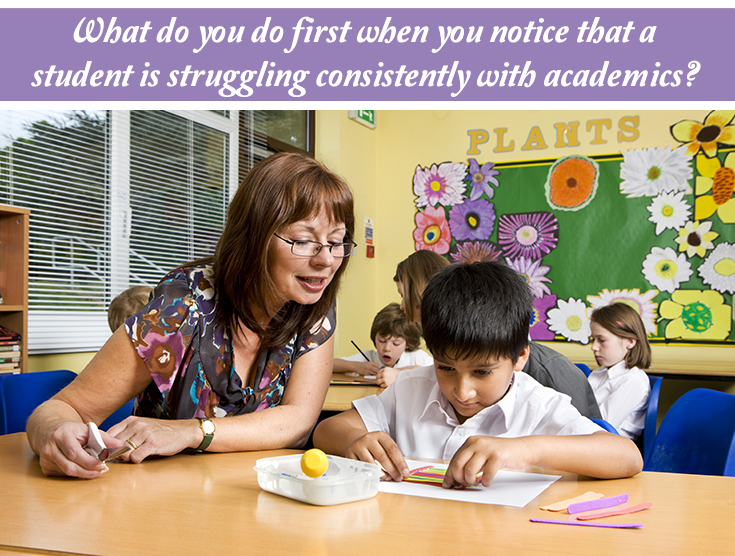What Are Some Academic Interventions Teachers Can Use With Struggling Learners?
Posted by Network Support · Leave a Comment
Learning How To Learn
With regular academic intervention, teachers can anticipate areas of difficulty before students approach new material…
When a teacher discovers study skills deficiencies, in a particular student, significantly impacting their classroom functioning or school performance, it is time for classroom academic intervention. While traditional remediation for struggling students imposes interventions after students have failed, with regular academic intervention teachers can anticipate areas of difficulty before students approach new material. Part of that anticipation includes the teacher understanding her class by knowing which students have learning disabilities, which have limited proficiency, how they have previously performed in class or what concepts have been difficult for the students in the past. Thus, adopting more targeted, instructional strategies earlier within the general education setting would, in many cases, be more appropriate and effective in meeting the needs of many struggling learners.
Support in academic intervention could include: organization of materials and work, time management, homework consistency, study strategies, note taking skills, planning and executing long term projects, review of specific concepts taught in class, etc.
Monitoring Academic Skills
Classroom interventions are put in place to monitor basic skills. Teachers may monitor acquisition of basic skills, fluency in basic skills, complex skills, and so on using various intervention strategies. There are six important interventions that teachers target on a daily basis.
1. Acquisition of Basic Skills
Basic Academic skills are ‘building-block’ skills that are the foundation for more advanced learning. When students begin to acquire basic skills, they are expected to learn a finite set of items such as multiplication math facts 0-9, letter sounds, or 50 vocabulary terms necessary for a science lesson. At this stage of learning where skills are acquired, the teacher assesses which items the student has mastered from the larger set.
2. Fluency in Basic Skills
When a student has acquired basic academic skills, the next goal is often to build fluency in those skills. Examples of fluency goals are increasing a student’s oral reading speed and working towards the automatic recall of math facts. In this fluency stage of learning, the teachers monitor accuracy while also tracking increasing speed of performance.
3. Complex Skills
It is important for teachers to evaluate students on higher-level academics that are multi-dimensional and complex. Here the teacher assesses the complex skills of the students. For example, a standard for grade 4 writing presents as a goal that the student will write an opinion essay supporting a specific point of view that includes particular elements such as introductory and concluding statements and supporting details.
4. Survival Skills
Academic survival skills are global ‘academic enablers’, including time management, study skills, homework completion, note-taking, which are required to support a strong academic performance. It is important for students to first cultivate a set of general “academic survival skills” in order to achieve success on the Common Core State Standards. The ability to study effectively, be organized, and manage time well are all included in the academic survival skills.
5. Classroom Behaviors
Classroom behaviors are specific, observable behaviors that relate to categories as general conduct (e.g., remaining in seat, calling out), compliance (e.g., following teacher directives); and academic readiness and engagement (e.g., paying attention to the teacher during a lesson, completing independent seatwork, bringing work materials to class).
6. Homework
Homework can be evaluated in a number of ways. Depending on the nature of the problem(s) presented, the teacher may track homework timeliness, completion, accuracy, and/or quality.
Like this article for teachers?
Browse the Professional Learning Board COURSE CATALOG to find related online courses for teachers in your state. Professional Learning Board is a leading provider of online professional development classes that teachers use to renew a teaching license or renew a teaching certificate.





